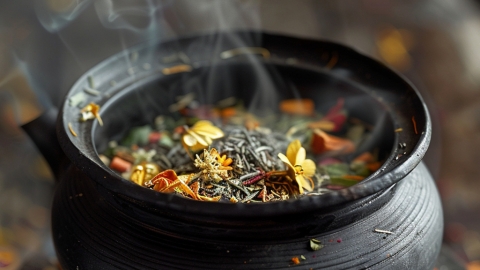Can I take traditional Chinese medicine during my menstrual period?
Generally, whether Chinese herbal medicine can be taken during menstruation should be determined by considering the ingredients and effects of the medicine. If the medicine is intended for regulating menstruation, it may be taken under medical guidance. However, if it belongs to blood-activating and stasis-resolving herbs or heat-clearing and detoxifying herbs, it may not be recommended. Medication during menstruation must strictly follow medical instructions; self-adjustment of dosage or changing prescriptions is not advised. Detailed analysis is as follows:

Chinese Herbs for Menstrual Regulation: If the Chinese herbal medicine mainly functions to invigorate qi and nourish blood, warm the meridians and dispel cold, and regulate menstruation and relieve pain, such as Angelica sinensis (Dang Gui), Chuanxiong (Ligusticum wallichii), Baishao (Paeonia lactiflora), Shudihuang (Rehmannia glutinosa), etc., and does not possess blood-activating or cooling properties, it may be taken under medical supervision during menstruation. These herbs can help improve symptoms such as blood deficiency, dysmenorrhea, or light menstrual flow. For herbs targeting menstrual symptoms: If the Chinese herbal medicine is used to relieve menstrual symptoms such as abdominal pain, back pain, breast tenderness, and has a mild, non-irritating nature, it may be taken under a doctor's guidance.
Blood-Activating and Stasis-Resolving Herbs: Herbs such as Safflower (Carthamus tinctorius), Taoren (Prunus persica), Sanqi (Panax notoginseng), and Yimucao (Leonurus japonicus) may increase menstrual flow or prolong the menstrual period, potentially leading to blood deficiency. Those with heavy menstrual bleeding or prolonged menstruation should avoid taking these. Cooling and Heat-Clearing Herbs: Herbs such as Huanglian (Coptis chinensis), Huangqin (Scutellaria baicalensis), Jin Yin Hua (Lonicera japonica), and Lianqiao (Forsythia suspensa) may cause cold in the uterus, leading to poor menstrual blood discharge or worsening dysmenorrhea. Individuals with a cold constitution or those who feel cold easily during menstruation should use these cautiously.
During menstruation, women should not only pay attention to medication but also maintain a pleasant mood, ensure adequate rest, avoid heavy physical labor, keep warm, and prevent cold exposure.





